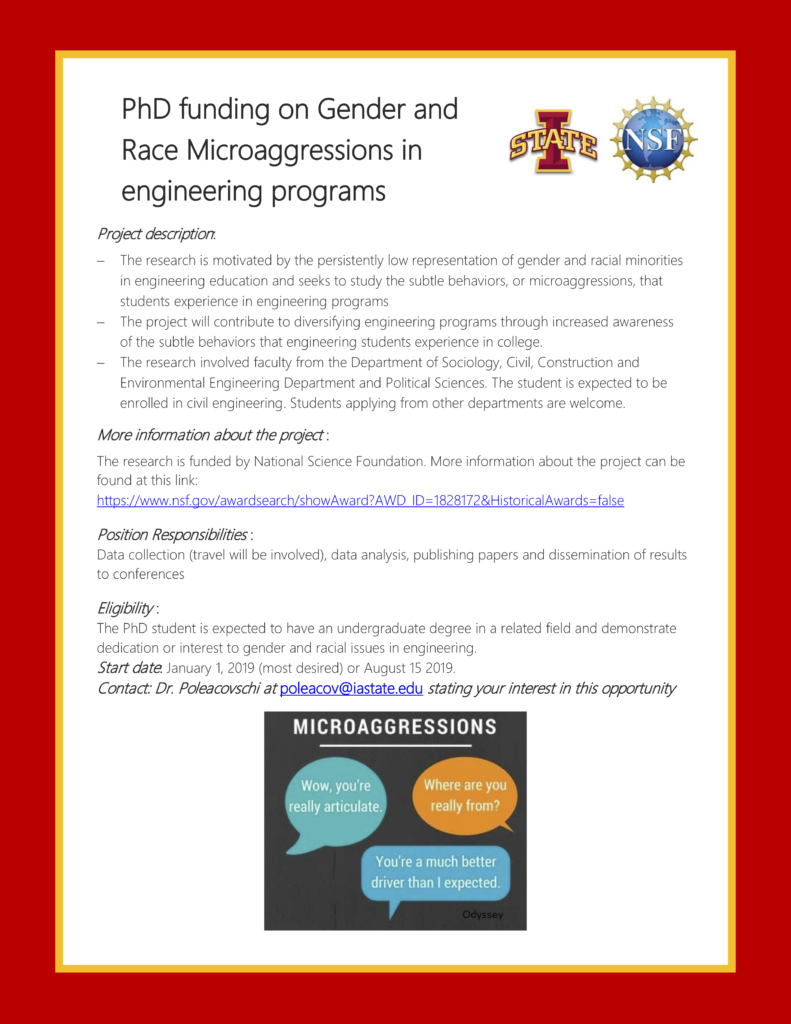The research is motivated by the persistently low representation of gender and racial minorities in engineering education and seeks to study the subtle behaviors, or microaggressions, that students experience in engineering programs. While microaggressions are especially frequent among minority students, their influence on student success and persistence in engineering programs has been understudied. This research investigates the effect of microaggressions on the experiences of engineering students and compares them in the context of a predominantly white institutions (Iowa State University) and a historically black college (North Carolina A&T). The project will contribute to diversifying engineering programs through increased awareness of the subtle behaviors that engineering students experience in college. Creating an environment where minority students feel safe and included allow educating a competitive workforce which will ultimately positively impact our society by incorporating the needs and perspectives of all student groups.
Using an intersectional perspective that considers race and gender identities as unique identities, this research asks “How do gender and race microaggressions affect students’ success and persistence in engineering programs?” To answer this question, this research proposes to address four primary goals: (1) identify gender and race microaggressions experienced by engineering students who identify as White men, White women, African-American men, African-American women, Latino men, Latina women, Asian men and Asian women; (2) build a gender and race microaggressions psychometric scale based on two institutional contexts; (3) test the relationship between gender and race microaggressions and success and persistence indicators (self-efficacy, institutional affiliation, psychological well-being and academic performance) in the context of a PWI and a HBCU; and (4) contrast and compare student experiences with gender and race microaggressions within and across the two institutional contexts. The research advances the body of knowledge on microaggressions by identifying the real stories of students who experience them and by building measures of gender and race microaggressions. Importantly, this project clarifies that microaggressions need to be studied from an intersectional perspective and consider students’ unique identity based on both race and gender. Additionally, the study advances knowledge regarding institutional contexts (PWI vs. HBCU) for students’ experiences with microaggressions.
The award supporting this PhD position can be found here.

